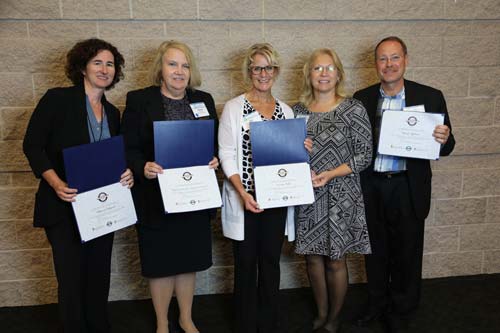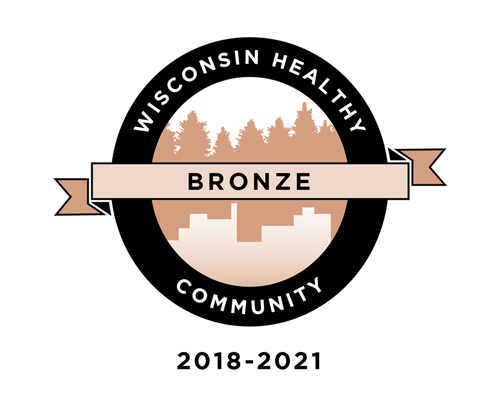MADISON – More than 30 communities around the state have been recognized for their work to improve health in their communities.
The Wisconsin Healthy Communities Designation is a new initiative offered by the Mobilizing Action Toward Community Health (MATCH) group of the UW Population Health Institute (UWPHI), in collaboration with diverse statewide groups. The program, funded by the Wisconsin Partnership Program, is designed to celebrate and encourage achievements in health improvement in Wisconsin, and to serve as a guide for communities to expand and enhance their health improvement efforts.
The designation program recognizes communities that focus efforts across the multiple factors that influence health – including health behaviors, clinical care, social and economic factors, and the physical
environment – with a focus on equity, multi-sector partnerships and sustainable solutions.

“Achieving equitable health outcomes takes years to accomplish, and this program is all about celebrating the hard work happening across Wisconsin,” said Sheri Johnson, director of the University of Wisconsin Population Health Institute. “Our goal is to acknowledge and support ongoing efforts in local communities to improve health for everyone.”
This year, 31 communities received either a bronze, silver or gold designation. Four communities received a gold designation. The tiers are meant to provide a trajectory and serve as a guide for communities as they work toward comprehensive solutions for better health – the gold level representing the most difficult to achieve. However, receiving a designation, at any level, does not indicate that health or health equity has been achieved in a community; rather, the designation is meant to commend the efforts and the partnerships working to improve health.
The initiative’s definition of community is broad and can include counties, municipalities, neighborhoods and other self-defined, place-based communities in Wisconsin.
“This initiative was developed in response to a request from rural communities across the state and gives communities of all shapes and sizes – rural and urban – an opportunity to be recognized for the great work that they are doing to improve their own health,” said Tim Size, executive director of the Rural Wisconsin Health Cooperative, a collaborative of 42 rural hospitals and local health systems, and a member of the UW Population Health Institute’s advisory board.
The Healthy Community Designation lasts for three years, at which point a community may reapply. To learn more about the program and the application process, visit the program website: www.wihealthycommunities.org
The communities were recognized at the 2018 Healthiest State Summit, Sept. 20 and 21, at the KI Convention Center in Green Bay. This two-day summit was a statewide gathering of leaders to work on shared priorities around health equity and to build skills.
For more on the summit please visit: https://www.wpha.org/mpage/HealthiestState
More about the Designation program
The Wisconsin Healthy Communities Designation program is an initiative of the Mobilizing Action Toward Community Health (MATCH) group’s Making Wisconsin the Healthiest State project at the University of Wisconsin Population Health Institute. The Making Wisconsin the Healthiest State project, funded by the Wisconsin Partnership Program of the UW School of Medicine and Public Health, seeks to help us understand and improve health across Wisconsin.


